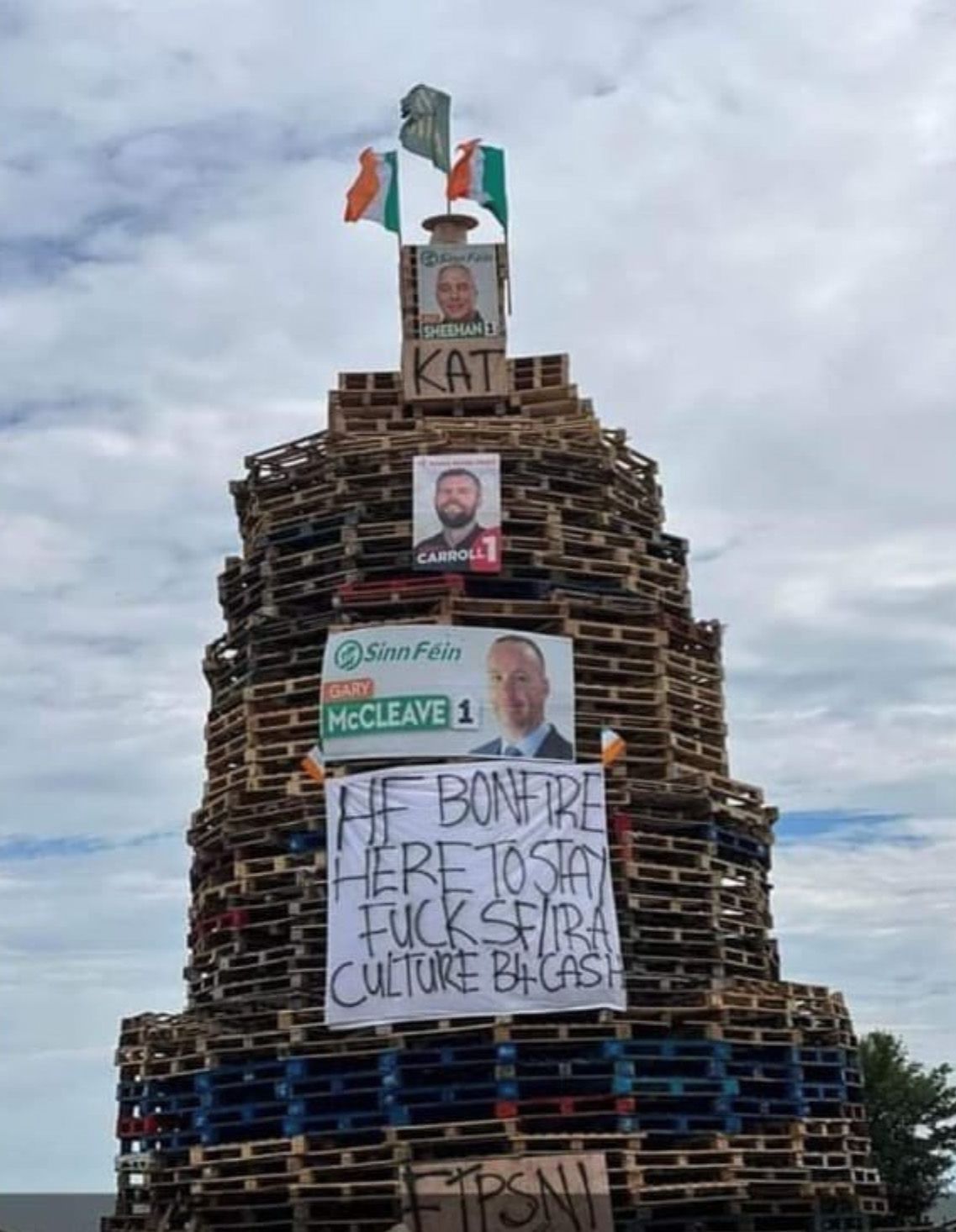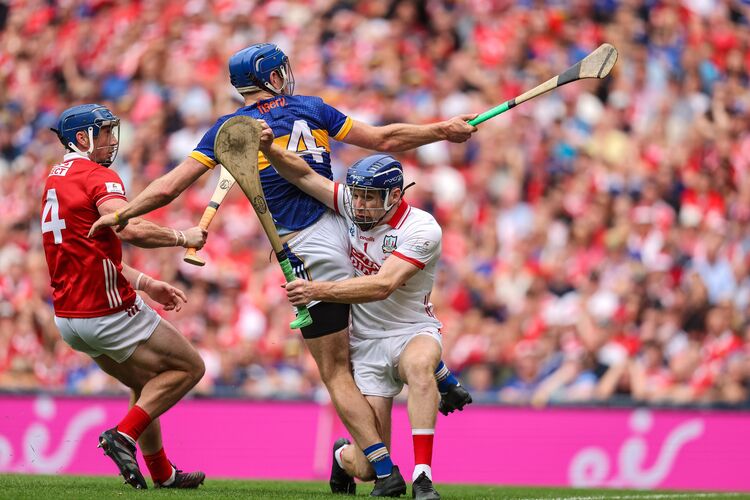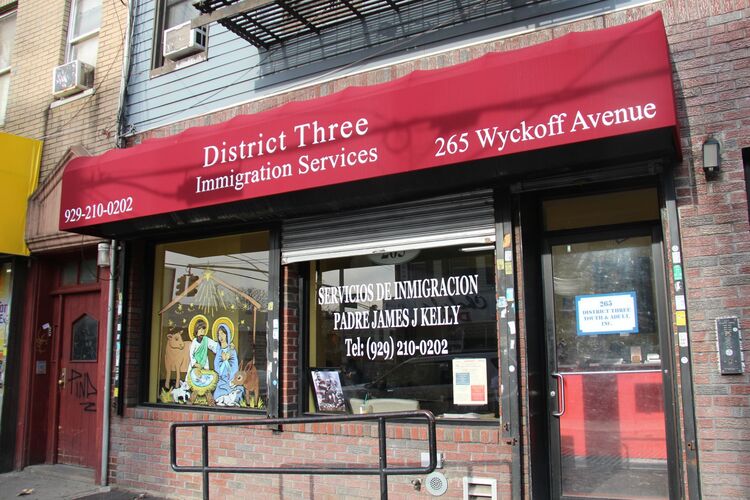Internment was introduced 52 years ago next month on August 9, 1971.
In the early hours of that morning 342 men and boys from nationalist homes across the North were dragged from their homes.
Many were badly beaten and forced to run a gauntlet of battle wielding British soldiers. 14 - The Hooded Men - were subjected to days of sustained torture.
It was a traumatic moment for society in the North. In Ballymurphy, ten local people were shot to death by the British Army. Another man died of a heart attack when accosted by them.
I was interned in 1972. Released and re-interned in July 1973. On Christmas Eve 1973 four of us made a failed attempt to escape. The following July I tried again and failed. For these two escape attempts I was sentenced by a Diplock non-jury court to five years for attempting to escape from "lawful custody."
Fast forward 32 years to 2009 and a researcher working for the Pat Finucane Centre in Derry uncovered a memorandum, dated 8 July 1974, from the Director of Public Prosecutions to the British Attorney General.
In it the DPP warned the Attorney General that before they decided to go ahead with the escape charges they should understand that there was the possibility that the would-be escapers and “many other detainees held under the Orders which have not been signed by the Secretary of State himself may be unlawfully detained.”
It took ten years of diligent work on the part of my lawyers, but eventually the British Supreme Court in 2020 ruled that as the British Secretary of State had not signed my interim custody order I had been unlawfully detained.
While a global movement has emerged everywhere to raise concerns about climate warming and damage to the environment, in this place thousands of burning piles of rubber tires poison the air every July.
The Supreme Court quashed my two convictions. The Department of Justice in the North decided in 2021 that I was ineligible for compensation. I challenged this decision. In April, Justice Colton concluded that it was “beyond reasonable doubt that there has been a miscarriage of justice, that is, the applicant is innocent of the crime for which he was convicted.” He added that: “I am satisfied that the applicant meets the test for compensation under the Criminal Justice Act 1988.”
Almost immediately, Conservative politicians and unionists condemned the decision. The Justice Department has appealed the decision. Tories and unionists are claiming that my illegal internment was a technicality. Several British Lords brought in a rushed legal amendment that would deny compensation to any internee whose interim custody order had not been authorized by the Secretary of State. They were persuaded to drop this in favor of a formal British government amendment that was rushed last week. That now goes back to the British House of Commons to become law.
However hard the British government claims this is a technicality, or a loophole, the reality is that it was British law. The amendment therefore retrospectively changes British law five decades later. In its convoluted effort to prevent an estimated 300-400 former internees from claiming compensation for wrongful imprisonment the amendment states that the order-making functions which the British ministers failed to follow fifty years ago should now “be treated as having always been exercisable by authorised Ministers of the Crown" (as well as the Secretary of State).
It also states that “an interim custody order is not to be regarded as having ever been unlawful just because an authorised Minister of the Crown exercised any of the order-making functions in relation to the order.”
George Orwell could have penned these words. Nineteen Eighty Four is about exactly these sort of machinations.
As for compensation, the Lords amendment states that once the amendment is passed no one can take a civil action or continue with one already in place if the person bringing the action claims that their imprisonment occurred because an interim custody order was unlawfully signed.
None of this will come as any surprise to those in Ireland, and in countless other states around the world, that have experienced British injustice. The leading British counter-insurgency expert, Frank Kitson, described it well in his 1971 manual, "Low-Intensity Operations: Subversion, Insurgency & Peacekeeping."
He wrote: “The law should be used as just another weapon in the Government’s arsenal, and in this case it becomes little more than a propaganda cover for the disposal of unwanted members of the public.”
In this instance, with the stroke of a pen what was illegal fifty years ago has now been made "legal." Another example of Britannia waiving the rules.
THE TWELFTH
By the time you get to read this The Twelfth will be over. Peacefully we all hope. It is clearly a big day out for those who march to celebrate the Battle of the Boyne and others who line the routes to support them.
The vast majority of those involved, especially in rural areas, clearly see The Twelfth as a family day out. They love the pageantry, the banners, flags and street arches. They also love the marching bands, the uniforms, the fifes and drums, bagpipes and flutes. I like those musical instruments also. So there are issues we have in common.
But there are other issues to be looked at. Beneath and behind all this craic on The Twelfth is the history of Orangeism and the deeply sectarian nature and role of the Orange Order in creating and upholding the northern statelet. Add to that an overdose of anti-Catholic bigotry and you get the deeply offensive and provocative behavior of some of the marchers prevalent to this day in some places not far from where I pen these words.
And the bonfires! I cannot imagine any modern society where bonfires would be built on public streets and roads close to homes and public buildings, including hospitals. The lighting of bonfires to mark events goes back centuries in human history and is not confined to the Orange, or Ireland.
But in most other cultures the fires are modest affairs on hilltops or the edge of fields. Indeed in many places nowadays they are confined to designated sites and beacons in steel containers.
They are not the dangerous high pyres festooned with sectarian banners, flags, effigies, religious icons or images of politicians.
Could it be that this burning of images associated with others has its roots in the annual ritual burning of an effigy of Lundy, the "traitor" of the Siege of Derry?
And what of the damage to the environment? If I burned rubber tires in my backyard I would quite rightly be prosecuted. That doesn’t happen if such burning is associated with the Orange Order.
While a global movement has emerged everywhere to raise concerns about climate warming and damage to the environment, in this place thousands of burning piles of rubber tires poison the air every July.
Why are laws governing these matters not enforced? Or laws dealing with incitement to hatred? Surely no decent Orange member wants to be associated with such behavior. Surely Orange leaders have an obligation to make this clear.
This column upholds the right of the Loyal Orders to march and to celebrate the Orange tradition. That tradition is part of what we are and when the Union is ended there will continue to be Orange events and the Orange will have the right to celebrate its traditions in the new Ireland.
But the Orange clearly has a lot to do to make its behavior more acceptable. And it doesn't have to wait until the new Ireland to do this. In fairness, there have been very worthy efforts to ease tensions. They continue to this day.
Every July, community representatives in Belfast liaise in flashpoint areas to ensure that calm is maintained. While the rest of us are asleep in our beds sensible loyalists and republicans keep the peace. Dialogue is central to this.
Many years ago, Derry led the way when talks between The Bogside Residents and The Loyal Orders put in place arrangements which facilitated the conduct of Orange parades in that fine city. Now the marching season in Derry is generally peaceful. The irony these days is that recent street disturbances there - and they were limited and unpopular - come from a different source. The death of Lyra McKee in 2019 at the hands of so-called dissidents is a tragic example of the stupidity of those involved.
So, there is a lot still to do to make our society more tolerant and fair. Those of us who rail against the unacceptable aspects of Orangeism need to be avowedly anti-sectarian. We don’t have to like The Twelfth. But we can, and do, put up with it. The Orange parade in Rossnowlagh in Donegal is held up as a good example of a peaceful, non-contentious acceptable Orange event. Years ago, a Donegal Orangeman interviewed on why this was so while there was chaos on this side of the border replied: "Because we don’t threaten anyone in Rossnowlagh."
There is learning for all of us in that. May all our Twelfths be like Rossnowlagh.







